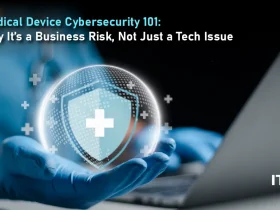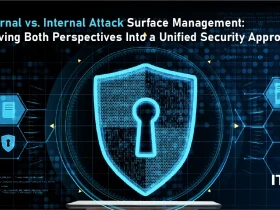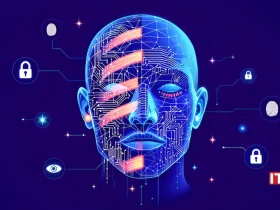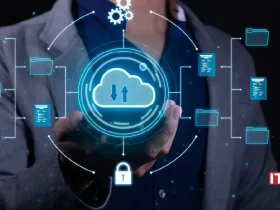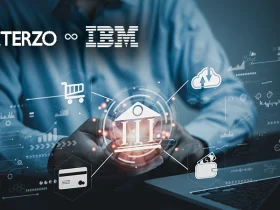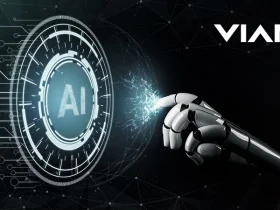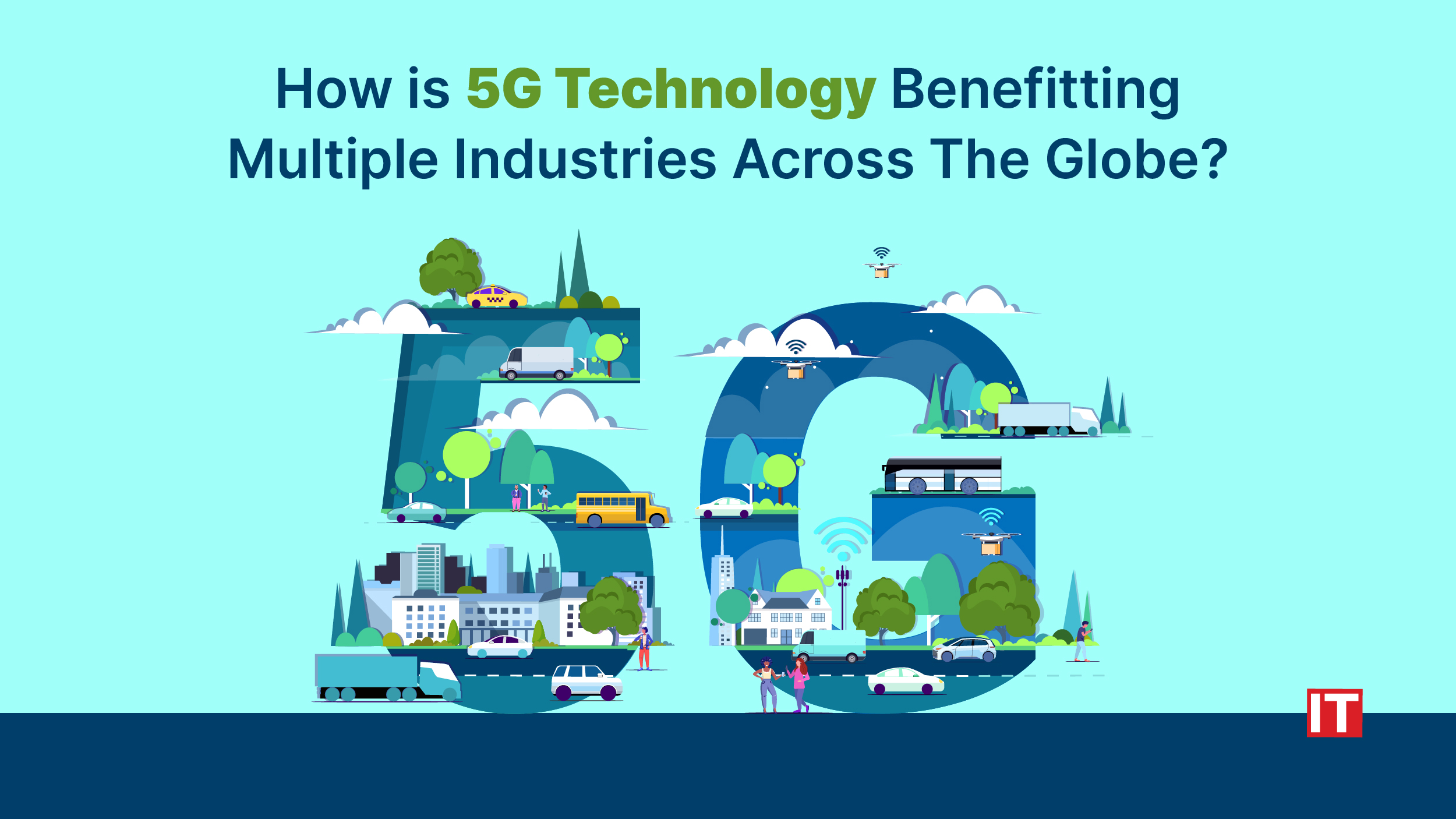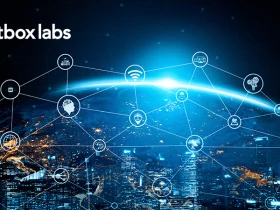The next big thing in networking for wireless technologies is 5G technology. It is, to put it simply, the fifth generation of wireless technology. This generation of technology is anticipated to be more advanced, quicker, and larger than life!
With the aim of connecting everything and everyone, including people, buildings, cities, sensors, smartphones, robots, and drones, 5G architecture is built on a much higher next-generation technological plane.
5G technology will be more advanced than current wireless technology in terms of data speeds, latency, system capacity, energy efficiency, and cost savings. For society and industry, it will bring new capabilities and opportunities.
Every facet of 5G technology will be covered in this article, including how it has affected various industries, how it can help businesses, and how widespread it is throughout the globe.
What is 5G Technology?
People are constantly looking for the best, the largest, and the fastest. In keeping with the current 2G, 3G, and 4G communication standards, 5G is the most recent in line. Users prefer using 5G technology as it allows them to download material from the internet even quicker than other technologies.
Additionally, it makes it possible for IoT machines, sensors, and devices to communicate quickly. 5G networks have peak data transfer speeds of up to 20 GBps, making them much faster than 4G networks. They have a high dependability of up to 99.9999% for data transmission. This denotes seamless data transfer with an incredibly low latency of just one millisecond.
How Will 5G Technology Impact Various Industries?
Faster network speeds, lower latency, and higher capacity aren’t just nice-to-have benefits of 5G technology. Instead, they are the driving force behind innovations such as the Internet of Things (IoT), Artificial Intelligence (AI), and Machine Learning. Since 5G will have capabilities that are superior to anything currently available, there are countless industries that stand to gain from it.
You can better take advantage of cutting-edge technology and give your customers meaningful impressions with the support of advanced network infrastructures, such as 5G technology and software-defined networks. What impact, though, would 5G have on your sector?
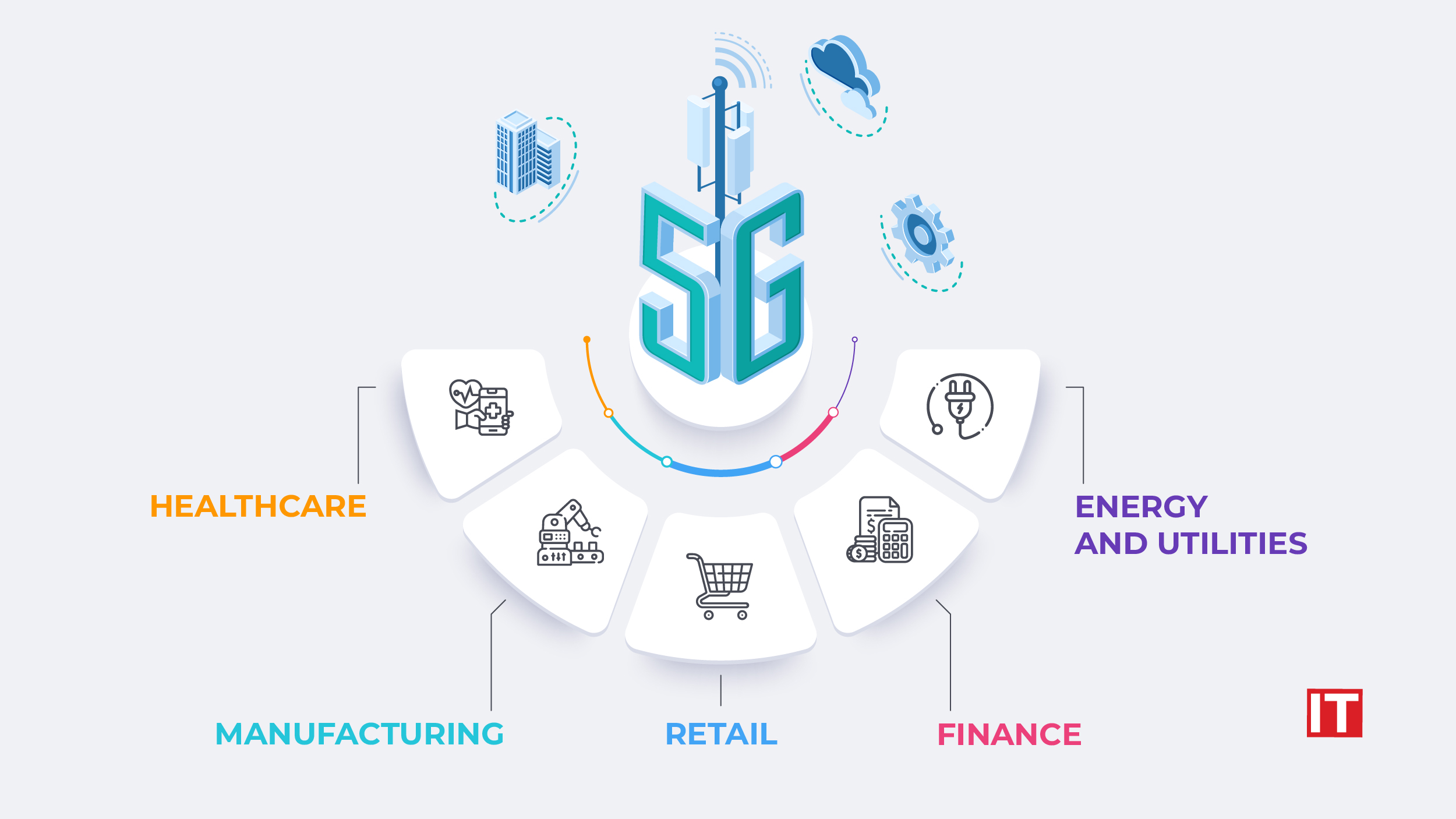
Healthcare
The healthcare sector should gain greatly from 5G technology. Together with edge computing, its speed and low latency could speed up the application of AI and big data analytics for streaming massive, media-rich diagnostic images (and enabling near real-time collaboration on them). Additionally, it might make it possible for robotics and fluid augmented reality technologies to help surgeons train for and practice complicated operations where accuracy could mean the difference between life and death.
Manufacturing
The Industrial Internet of Things (IIoT) uses cases that Industry 4.0 promises should be made possible through advanced networking. 5G technology could be used to support quality efforts, identify product defects on a production line, and deliver actionable data to people and systems to help minimize waste and maintain quality. This is in addition to using cases such as a computer or machine vision that can be used to enrich data with additional context.
Retail
Retail operations that use 5G technology will profit from it on both the front and back ends of their operations. Retailers may improve physical stores by installing digital mirrors that suggest matching clothes or fitting rooms that let shoppers experiment with different looks without really changing.
Systems should be able to handle the huge data volume produced by these applications with a 5G network’s low latency in order to give users a seamless, memorable experience. When a customer is deciding whether or not to shop again, this could be a crucial motivating factor in brand affinity and loyalty.
Also Read: How Is Digital Business Model Transforming The Business Landscape?
Smart shelves might calculate inventory weight and transmit purchase orders to suppliers automatically, while RFID tags on products could do away with the need for checkout lanes by allowing scanning machines to automatically log product details and activate digital wallets with charges.
Expect 5G to play a bigger part in warehouse management as e-commerce grows, from controlling robots for packing and fulfillment tasks to assessing product/brand affinity in real time.
Finance
Mobile devices are increasingly being used for many financial sector tasks, particularly personal banking. An improved mobile banking experience should be provided by 5G as connections stay quick and reliable.
Advanced biometric identification verification methods should be made possible by this wireless performance, assisting in the protection of financial information. Customers won’t be the only ones to benefit from 5G connectivity. By utilizing geolocation technology and connecting those with user IDs, financial institutions will be better able to identify fraud more quickly.
Energy and Utilities
In order to monitor energy and utility assets while preserving high-quality video, drones and unmanned aerial vehicles (UAVs) may find 5G to be a crucial tool. This might increase the precision of video analysis, which could improve grid resiliency. Similarly, trained technicians can employ mixed reality models via top-notch videoconferencing to diagnose issues in the sector.
Where is 5G Technology Being Widely Used?
Generally speaking, 5G is utilized by three primary categories of connected services, including massive IoT, mission-critical communications, and enhanced mobile broadband. One distinguishing feature of 5G is that it is built for forward compatibility, or the flexibility to enable future services that are currently unachievable.
1. Enhanced Mobile Broadband
Along with improving our smartphones, 5G mobile technology has the potential to bring forth new immersive experiences including VR and AR with faster, more consistent data rates, lower latency, and lower cost-per-bit.
2. Mission-critical Communications
With ultra-reliable, accessible, low-latency networks, 5G can enable new services that can revolutionize industries, such as remote control of critical infrastructure, automobiles, and medical operations.
3. Massive IoT
Through the capacity to scale down in data rates, power, and mobility, 5G is intended to seamlessly connect a huge number of embedded sensors in virtually everything, offering incredibly lean and affordable connectivity solutions.
Only the Beginning
While these are only a few of the industries that might benefit from the 5G technology in the near future, their innovation demonstrates how ground-breaking this technology might be for the entire world. Learning more about 5G could provide businesses a competitive edge, and help them retain it.
Numerous industries will undergo radical change as a result of 5G networks’ incredible potential for both corporations and consumers. As technology advances, even more advantages will become apparent. The vision of 5G is currently only a distant dream. But the 5G vision will become a reality in a matter of years, and technological advances are essential to guiding the globe toward an unimaginably advanced future.






















